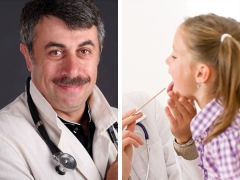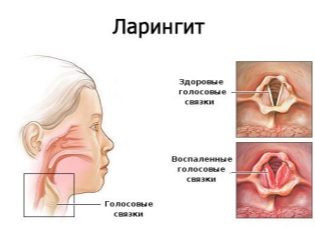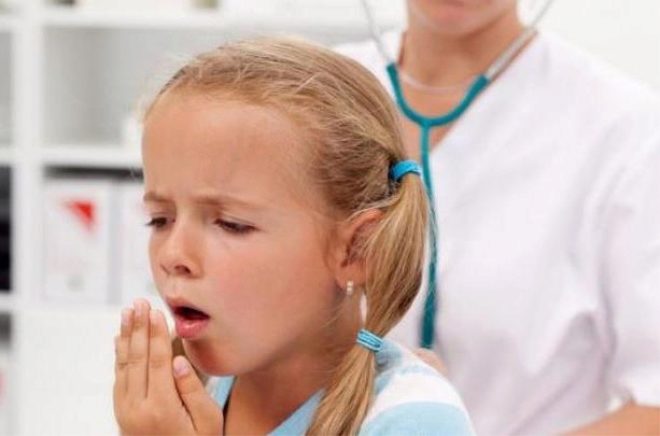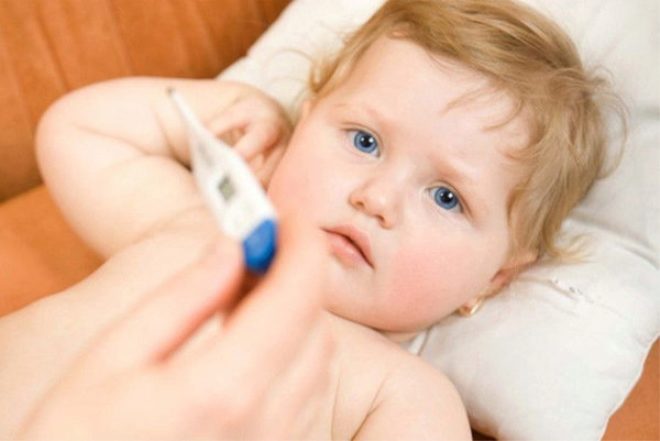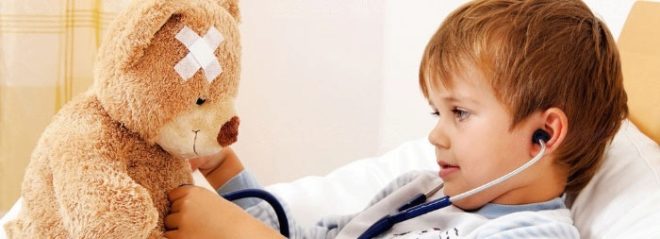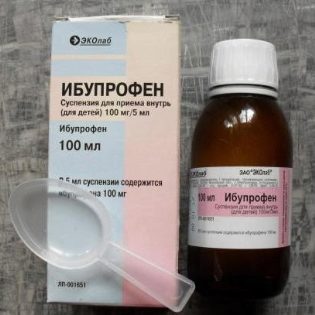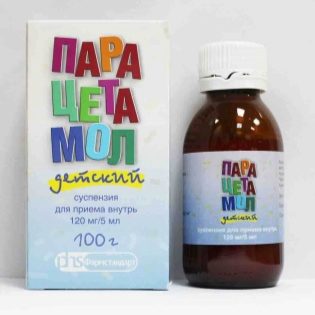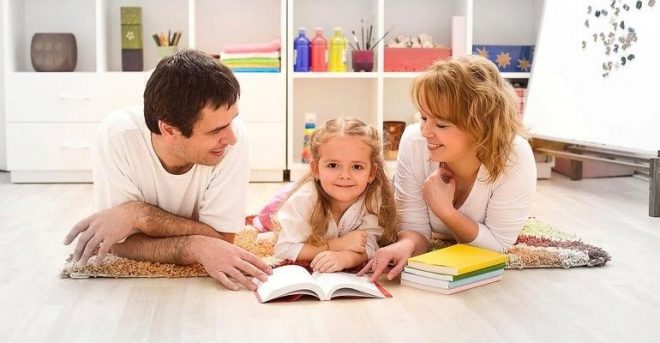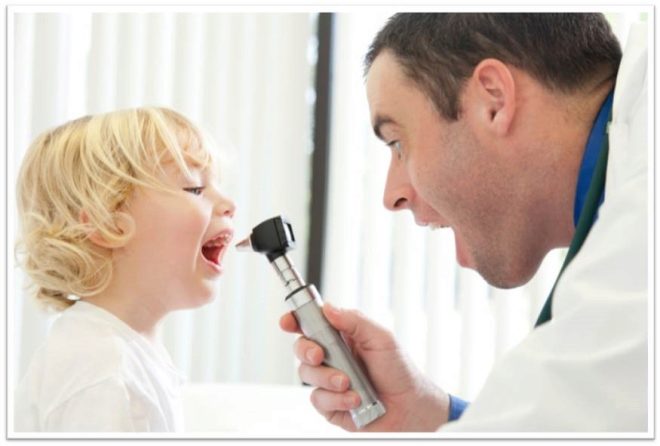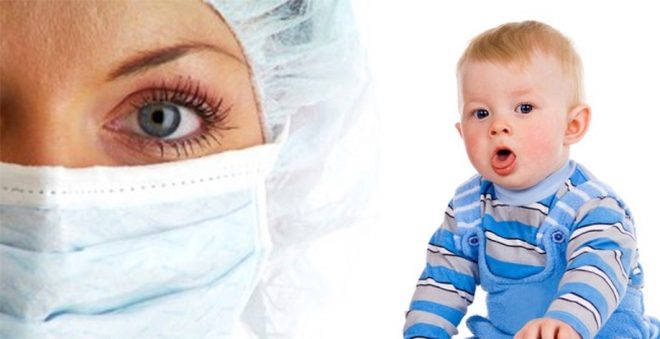Dr. Komarovsky about laryngitis
Often parents have to hear the diagnosis of laryngitis from pediatricians. However, practice shows that not every mother imagines what it really is and why this ailment happens. And after all the correct approach to treatment directly depends on it. The famous doctor Yevgeny Komarovsky tells what a disease is and how to fight it.
About the disease
Laryngitis in 99% of cases - the disease is viral. Alien agents, penetrating through the nasopharynx, move along it further and "settle" in the larynx, causing an inflammatory process of the mucous membranes of this respiratory organ. You can often hear that it is a cold. This is not quite true, says Komarovsky. Hypothermia does contribute to the development of laryngitis, but low temperatures alone cannot cause laryngeal inflammation. Must be a virus.
If the virus has penetrated into the body, it will not only help the general hypothermia, but also the polluted air the child breathes, mouth breathing (if, for example, the nose is stuffed in the baby), as well as larynx and vocal chords overvoltage ( shouted, made noise, talked too loudly, etc.).
Sometimes the virus does not stop only on the defeat of the larynx and during replication spreads to a part of the trachea. Then doctors talk about such a disease as laryngotracheitis.
It is easier to recognize both diseases at home than a number of other diseases of the respiratory organs, since laryngitis and laryngotracheitis have characteristic symptoms that cannot be confused with anything. This is, for example, a dry barking cough. Komarovsky explains this inflammation in the vocal cords, which does not allow them to fully open. Cough becomes rude, often hoarseness (up to the complete impossibility of speaking) is characteristic of a child with laryngitis.
And now Dr. Komarovsky will tell us about children's laryngitis or croup in the next video.
Inflammation can be so severe that the lumen of the larynx is significantly reduced in size. This leads to difficulty breathing. Such a phenomenon in the medical literature has been called "stenosis." Laryngitis, which is accompanied by difficulty in breathing, cyanosis of the skin, general oxygen starvation, is called stenotic. Against the background of an infectious disease (most often it is ARVI), such a disease can qualify as croup.
Parents should not be surprised that different specialists will write various diagnoses to the baby in the medical record. One will indicate that the crumb has laryngitis, the other will write that he has croup. Both doctors are right. This is essentially the same disease, only expressed in varying degrees of severity.
Laryngitis, like most other human diseases, can be acute and chronic. The first develops on the background of acute respiratory viral infections, the second - in the absence of the necessary therapy or the wrong treatment of the acute form of the disease. The most dangerous is stenotic laryngitis, in which, in the absence of qualified medical care, respiratory arrest can be fatal to a child.
In its form, laryngitis is spilled (exciting the entire mucous membrane of the larynx) and localized. In the latter case, one of the departments of the larynx (epiglottis, vocal folds) becomes inflamed.
A child’s croup can be false, and Dr. Komarovsky will tell you how to treat baby croup.
With laryngitis, the child’s condition will deteriorate gradually. The temperature can rise only a day or two after the appearance of barking cough. There is no strong heat in this disease, the temperature is around 37.0-37.7. After another day or two, the dry cough will begin to become productive, the sputum will gradually depart. If you carefully observe all the doctor's prescriptions, the average duration of the disease is about a week (most often it is 7-10 days).
Treatment
Treatment laryngitis should be aimed at eliminating the causes of inflammation of the larynx. Otherwise, the root cause will remain, the symptoms will temporarily disappear, and this is a direct path to the chronic form of the disease. Yevgeny Komarovsky reminds that this disease is viral, and therefore to treat it with antibiotics is a real parental crime. Antimicrobials cannot have any effect on viral agents.
Dr. Komarovsky will tell you about when and in which case antibiotics are needed in the next video, in which cases the use of antimicrobial drugs is permissible.
Pediatricians are often prescribed to children with laryngitis and laryngotracheitis. antiviral drugs (candles "Viferon", "Kipferon", Immunoglobulin preparations). Komarovsky does not see any sense in them, since clinically the effectiveness of antiviral agents has not been proven to date, and such prescriptions are only a measure that a doctor uses to “cleanse his own conscience”. After all, few parents can calmly relate to the fact that a pediatrician appoints a child ... fresh air and warm tea!
Homeopathic antiviral agents will not cause any harm to children, says Yevgeny Komarovsky, however, one should not expect any benefit from them. Charged water with particles of glucose can be cured only by those people who sincerely and unconditionally believe in the possibility of such healing, since it is in these situations that the placebo effect works.
If the temperature rises above 38.0 (which does not happen very often with laryngitis, it can still happen), then Yevgeny Komarovsky recommends that parents give the child Paracetamol or Ibuprofen. Other antipyretic drugs should not be used.
The main factor contributing to the speedy cure of laryngitis and laryngotracheitis is rest. A child for 5-6 days should not talk, sing, shout, should refrain from active games, noisy companies. All foods that can cause additional irritation of the already inflamed larynx should be excluded from the baby’s diet. We are talking about spices, seasonings, sour berries and fruits, cold drinks and ice cream, pickles and canned goods, spicy and too sweet foods.
If a child has chronic laryngitis, then he will have to become a regular guest in the ENT doctor’s office for quite a long time. These children are prescribed a course of physiotherapy, medicines and solutions for irrigation of the larynx. In particularly difficult cases, surgery may even be prescribed. Fortunately, such a need arises extremely rarely - in one case for several hundreds of thousands of children with laryngitis.
When to call an ambulance?
The answer to this question is simple: with stenotic laryngitis. If the child has difficulty breathing, you should call the "emergency room". In the risk group, usually children from 6 to 8 years old, it is they most often develop croup. This form of the disease is characteristic of children suffering from exudative diathesis. Attacks of difficulty breathing most often occur in the middle of the night and are accompanied by severe sweating, suffocating barking cough, and pallor. It is difficult for the child to take a breath. Typically, an attack lasts from 20 to 30 minutes.
Wait for the second is not necessary: it is too dangerous. After the first one, the baby should be delivered as soon as possible to the medical institution.
Tips
- According to Yevgeny Komarovsky, favorable conditions for a speedy recovery are the maximum of fresh air and abundant drinking., which does not allow the mucous membranes to dry up, and sputum - thicken and stagnate. With the same good purpose in the house where the sick, you need to monitor the temperature and humidity. The temperature should not be higher than 20 degrees, and it is desirable to maintain the air humidity at a level of 50-70%.
- If there is no special device-humidifier, which is enough to turn on and set the necessary parameters, then you can hang wet towels around the house, put a basin of water.
- InhalationKomarovsky recommends doing it only after consulting with a doctor about the benefits of which during laryngitis is much written on the Internet. In many cases, inhalation with this disease is contraindicated. If the attending physician is not against such procedures, then it should be remembered that they do not do inhalation at the temperature, and parents should use only steam inhalers to treat laryngitis.
- Gargling can be done, but it should be remembered that too frequent vibratory movements, which are inevitable when rinsing, can further injure the larynx. Komarovsky advises to comply with the measure.
- Warming compresses on the throat with laryngitis should not be alcoholic, warns Yevgeny Komarovsky. Best of all - dry heat, which can be achieved simply by tying a woolen scarf around the neck.
- The mode of activity of the child in the treatment of laryngitis should be as follows: the onset of the disease - complete rest, the final stage of the disease, when a wet cough with sputum begins - more walks and movement. With the stagnation of sputum, you can make a baby vibration massage. For this baby, an adult should be placed on his knees so that his head and shoulders are at a level lower than priests and legs. With your fingertips, gently knock the area of the bronchi, and then ask the child to take a vertical position and cough. This technique can be repeated up to 5-7 times during one session.
- Prevention of laryngitis is the timely and proper treatment of inflammatory processes in the sinuses, in the ear. It is important to teach the child to speak quietly, not to scream, because the correct voice mode will protect the delicate lining of the larynx from injury. During the period of seasonal increase in the incidence of influenza and ARVI, one should refrain from visiting crowded places, walk more often, carry a child less by public transport and not take him to supermarkets and markets. Systematic tempering and sports also significantly reduce the risk of laryngitis (even if the child has caught a viral infection).
